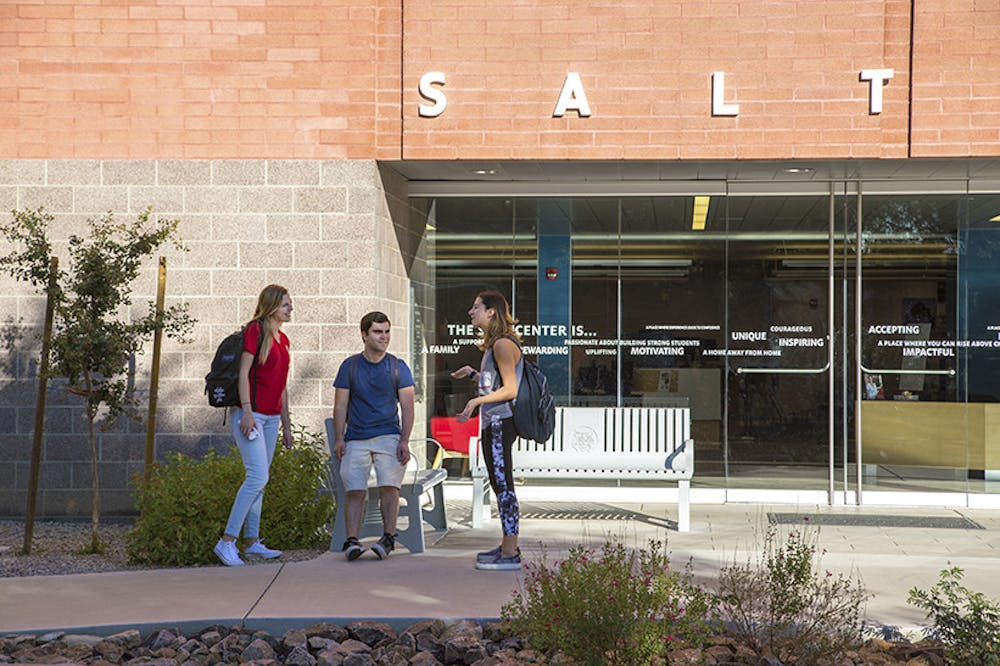House Bill 2031 has helped to make it easier for students to have their disability recognized by universities and colleges.
In June 2022, Arizona passed the law that makes it easier for students with disabilities to be recognized by the state's public universities. This bill helps the transition from students to go from high school into college and offers resources for their disability.
These resources could be travel from class to class, housing accommodations, a note taker or exam accommodations. Many services also included one on one help with a tutor or counseling sessions.
The disability resource page of Northern Arizona University says the university’s mission is to “lead collaborations with students, faculty, staff, and the campus community to cultivate a universally designed environment, and facilitate the removal of existing barriers for the full inclusion of people with disabilities.”
Jamie Axelrod, Americans with Disabilities Act Coordinator and 504 Compliance Officer, who is responsible for preventing discrimination against students based on their disability, for the Disability Resource Center at NAU works one-on-one with his team to find the accommodations students need during their time at the university in order to get their degrees.
When HB2031 was passed, NAU didn’t see a huge impact because it has “always accepted the documentation the law has outlined to accept someone with a disability,” Axelrod said. Many students are misled by the bill because it says “the specific accommodations written on a student’s documentation has to be automatically adopted by the university when applying to the disability center,” Axelrod explains. Rather this bill “helps individuals to qualify and get right accommodations by the us [disability center]” Axelrod said.
The University of Arizona has a service called the Strategic Alternative Learning Techniques, known as the SALT center. Starting in the 1980’s they are an “academic support program that inspires students with mild to moderate learning and attention challenges to succeed in higher education,” according to their website. “Through the provision of comprehensive academic support services, the SALT Center encourages student engagement, self-awareness, and growth.”
Gabrielle Miller, the assistant vice provost of student success and also the Retention Innovation Executive Director at the SALT Center explains that the university and the center “service above what is legally required to provide for students and has many different services like group or one on one tutoring.” They provide counseling and weekly check-ups to make sure students are staying on task and are managing time well. According to Miller, more than 80% of students involved in the program are in good academic standing with last semester 64% having a 4.0 GPA.
Arizona State University has been following an outline of HB2031 before it was passed.
Chad Price, who oversees the operations of Student Accessibility and Inclusive Learning Services, talked about the university charter, which states that ASU is a comprehensive public research university, measured not by whom it excludes, but by whom it includes and how they succeed; advancing research and discovery of public value; and assuming fundamental responsibility for the economic, social, cultural and overall health of the communities it serves.
Price explained: “The University has a strong interest in the success of students. Our department continues to look for ways to meet the needs of students, ensure they have access, and capture the vision of the Charter in support of students with disabilities.”
Although many of the public Arizona universities have been following a similar outline to HB2031, the bill works to ensure students get the help they need when pursuing a degree.

